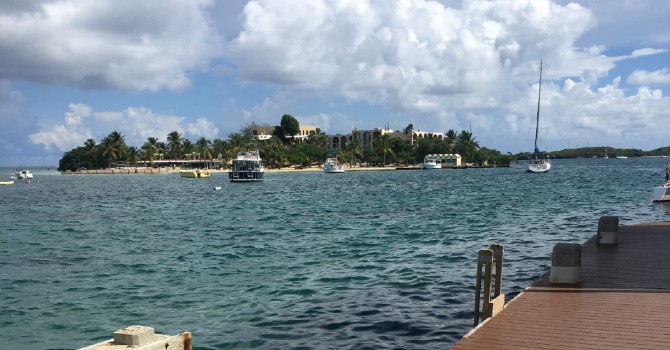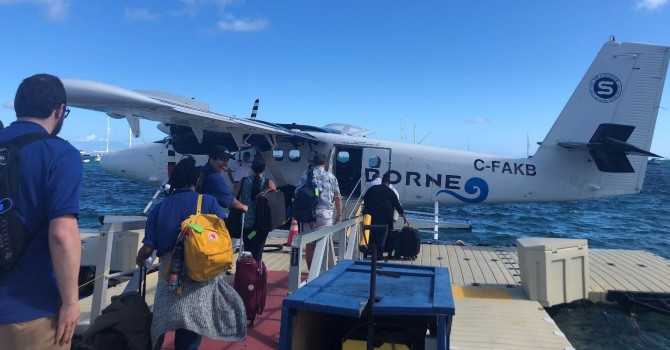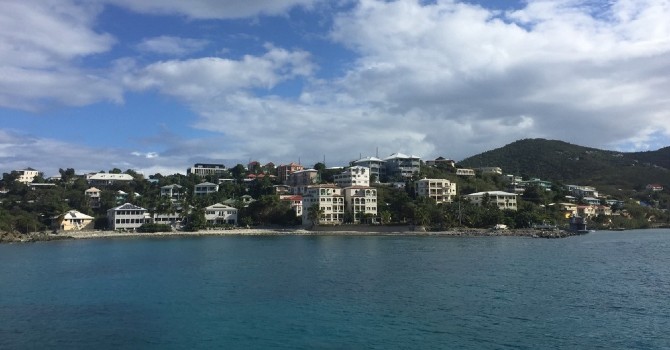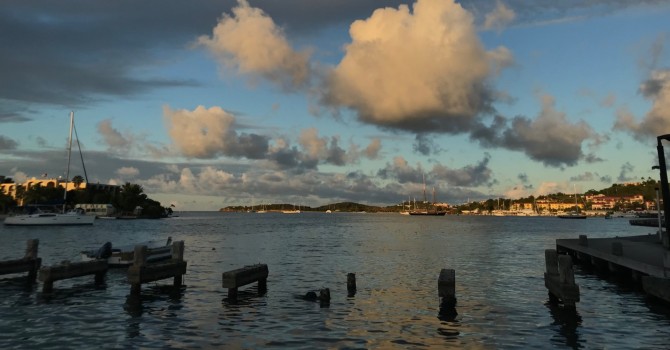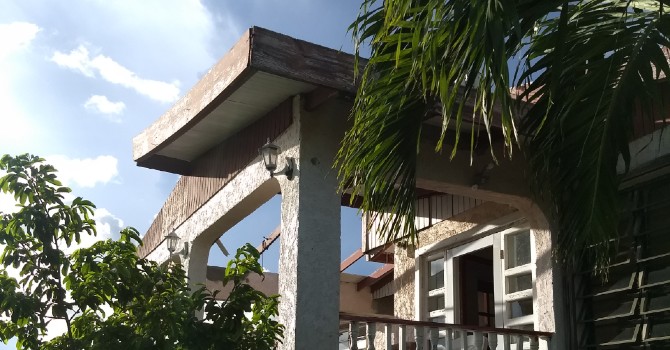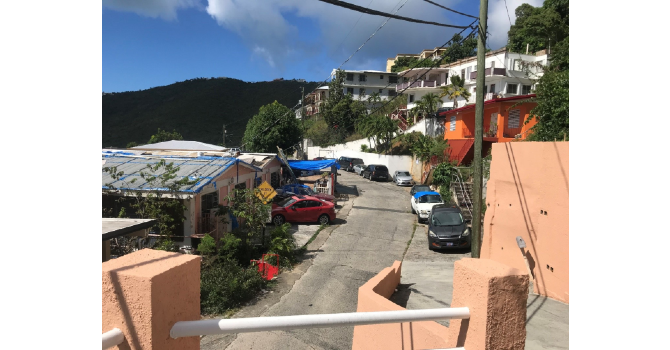Post-Trip Blog
Anna Bowie, HBHE Student
April 29, 2020, Community Partnership, Disaster Relief, Practice
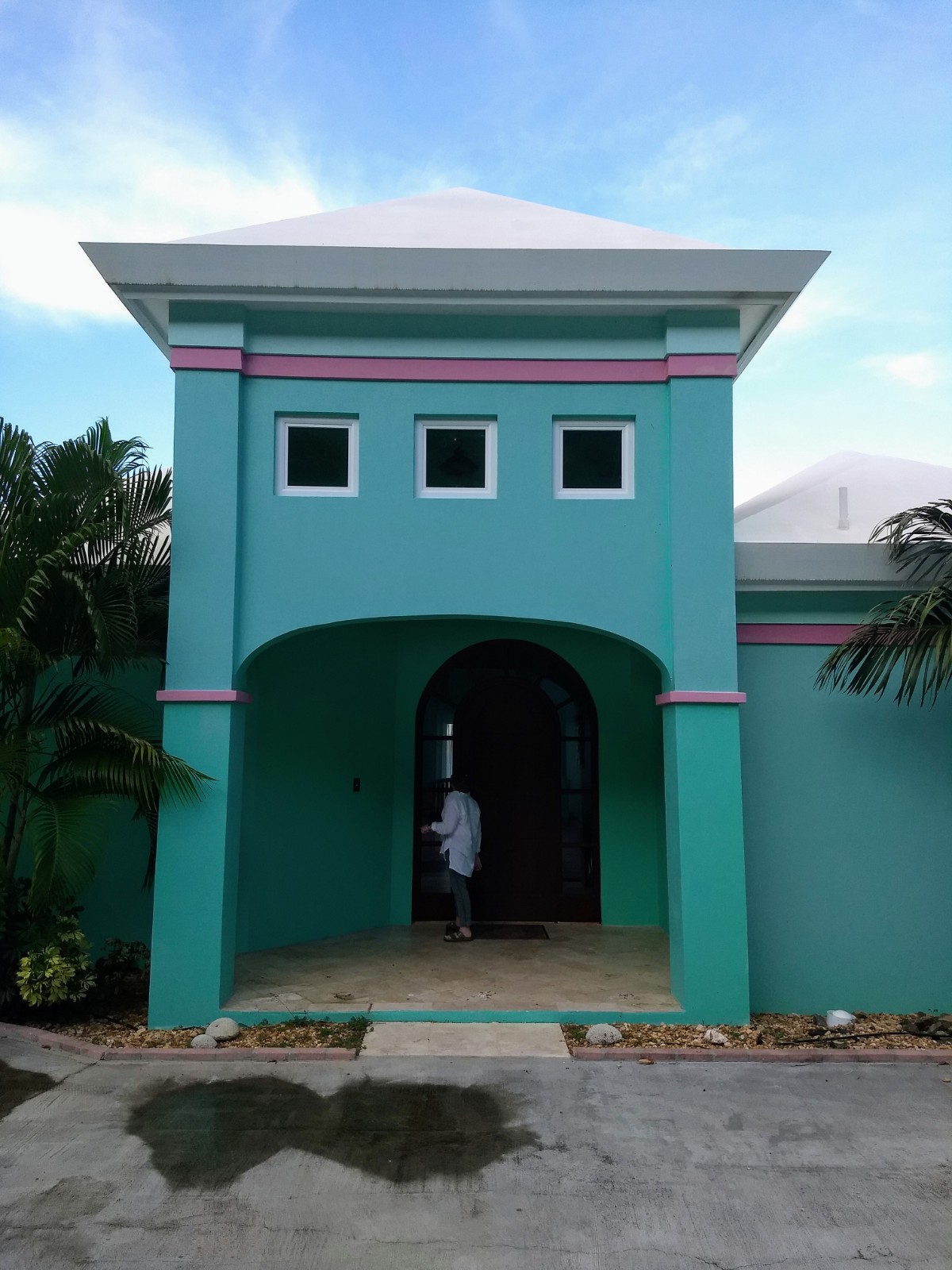
Note: There was a temporary pause in the publishing of our blog posts as our team returned in early March to the rapidly changing nature of the Coronavirus in Michigan. We now wish to share the thoughts of students on their experiences just before the COVID-19 outbreak.
As I return from this experience in the U.S. Virgin Islands, there are many moments, lessons, and conversations that make up these past 7 days that have a lasting impact on my personal and professional outlook. Even though only a few months have passed since I initially went with PHAST to the Virgin Islands in October, this experience was completely different, despite being in similar locations.
During my last visit, each aspect of the CAPSER process was new. I was continually trying to soak in the stories and culture of those being interviewed, while ensuring the data collected followed the collection procedures. When visiting this time, I felt comfortable in the expectations that were given to me as a surveyor and the understanding that patience was essential to this process. Overall, I felt an ease this time with approaching strangers and providing them a comforting place to voice their opinions and sensitive information. The ability to actively listen and intuitively feel when to pause or continue on in the survey felt to some extent easier during this second trip to the islands. However, it is important for me to note that although many of the questions were the same and I felt confident in my ability to respectfully engage with survey participants, there is no way to prepare for the unique experience of someone detailing the triumphs and hardships that they have had to deal with over the last two years. There was a specific instance in one of our days that we approached a woman to see if she would be interested in our survey. As we began the questions, she began to get emotional and shared with us the sensitivity of discussing the hurricane recovery due to the recent loss of her husband. He had been sick when Hurricane Maria and Irma hit the island and had to be taken to the states to resume treatment. In the chaotic wake of dealing with her husband’s worsening health condition, she expressed to us the unmanaged grief she was dealing with in reflection of the trauma of the storms in conjunction with the death of her husband. In listening to her story, it became apparent that often when reflecting on emergency events and natural disasters, like that we were surveying for, it is often not acknowledged that life for those impacted continues on. For many that we talked to, the recovery of the storm was not the only challenge they were continuing to face. Many were dealing with other personal, familial, or various other issues prior to the storms that still needed to be dealt with despite the hurricanes. Life does not have a pause button. While the media may present events like this through statistics and short-term coverage, there is long-term impact that takes resilience and determination long after the cameras stop covering recovery.
That is why in being a part of PHAST and the work with CASPER I continue to realize the importance of ensuring an effective dissemination plan is in place. For the time, effort, and energy that participants give to complete these surveys and provide information, it is our duty to ensure that their voices are not lost in the numbers and that we act upon the promise to support these communities and showcase the resilience and work they have done to recover.

